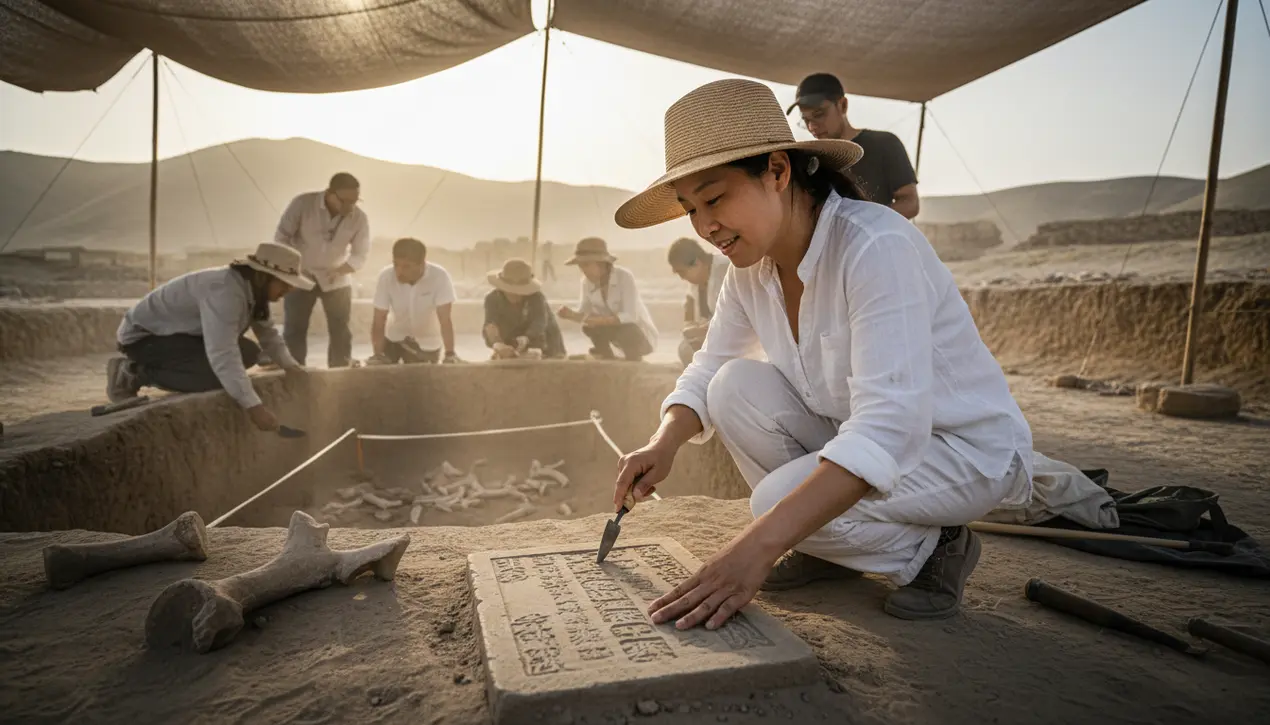
SciencearchaeologyAncient Civilizations
Scientific Reassessment Vindicates Ancient Chinese Queen Bao Si
RA
Rachel Adams
3 hours ago7 min read4 comments
For centuries, Queen Bao Si, consort to King You of the Western Zhou Dynasty, has been immortalized in history as the archetypal femme fatale whose supposed melancholy triggered a kingdom's downfall. A modern interdisciplinary reassessment, however, is fundamentally rewriting this narrative, absolving her of blame and exposing the legend as a politically motivated fabrication.The famous tale—that the king lit emergency beacon fires solely to amuse his somber queen, betraying the trust of his nobles and leading to the dynasty's collapse—is now understood by historians not as factual account, but as a potent allegory constructed by the succeeding Eastern Zhou dynasty to legitimize their rule by vilifying the last king and his court. This classic 'blame the woman' trope effectively scapegoated Bao Si for systemic failures of male leadership.Cutting-edge research into paleoclimatology and archaeology reveals that the Western Zhou's fall was the result of immense, impersonal forces. Analysis of sediment cores indicates a significant climatic shift towards colder and drier conditions, which would have caused widespread crop failure, famine, and social unrest.Simultaneously, archaeological evidence shows escalating military pressure from nomadic groups on the northern frontiers, creating a sustained crisis that no single beacon fire could have resolved. Through this revised lens, Bao Si emerges not as a villainess, but as a poignant figure within a court increasingly isolated from the severe ecological and geopolitical realities crippling the kingdom.Her legendary unsmiling demeanor may well have been a reflection of the prevailing anxiety in a capital besieged by internal decay and external threats. This vindication, driven by historians and scientists cross-referencing bronze inscriptions and environmental data with classical texts, is part of a crucial movement to reclaim the histories of women from simplistic caricatures.It underscores that the collapse of empires is a complex process born from environmental stress, administrative breakdown, and strategic overextension—not the whims of an individual. Clearing Bao Si's name is thus more than an act of posthumous justice; it is a stride toward a more accurate and nuanced comprehension of ancient China, demonstrating that historical truth often lies buried beneath the self-serving stories of the victors.
#archaeology
#ancient China
#Bao Si
#historical revision
#featured
Stay Informed. Act Smarter.
Get weekly highlights, major headlines, and expert insights — then put your knowledge to work in our live prediction markets.
Comments
Loading comments...
© 2025 Outpoll Service LTD. All rights reserved.